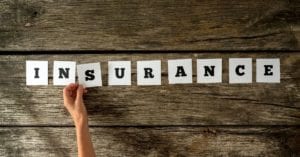 Not Losses Due to the COVID-19 Pandemic of 2020.
Not Losses Due to the COVID-19 Pandemic of 2020.
A Court in Miami recently addressed whether one company’s business interruption insurance covered COVID-19 shut down losses, in the recent case of COMMODORE, INC. v. CERTAIN UNDERWRITERS AT LLOYD’S, LONDON, et al., in the Circuit Court for the 11th Judicial Circuit in and for Miami-Dade County, Case No. 2020-010334-CA-01.
The business in this case was GreenStreet Café, a bar and restaurant located in Coconut Grove, Florida. The business purchased an “all-risk commercial property policy” insuring against, among other things, losses resulting from “business interruption.” Or at least that is what the business thought.
The business claimed that the COVID-19 pandemic caused it to suffer business interruption and loss of income. The insurance company denied coverage contending that the insurance policy limited business interruption coverage to events or incidents that caused a “direct physical loss of or damage to property,” and COVID-19 harmed people, not the insured’s property. The business argued that COVID-19 did cause “direct physical loss of or damage to property” because the presence of the virus rendered the property unusable.
There have been many cases on this exact issue since 2020 and many cases prior to 2020 that strongly pointed to how this issue would turn out. Current Florida case law holds that, “direct physical loss of or damage to property” means physical damage to the physical property itself. A few courts around the country have taken a more expansive view. The Court in this case had to follow the existing precedent, although the Florida Supreme Court has not addressed the issue.

The Court explained that any ambiguity in an insurance contract must be construed against the insurance company, but the phrase “direct physical loss of or damage to” must be “given its common meaning,” as it would be understood by the “man-on-the-street.” However, Florida precedent is that the average “man-on-the-street” would not say that the presence of a contagious virus causes “physical loss or damage to property”, because the virus did not cause harm or damage to the property itself. Thus, the Court in this case was forced to rule against the business.
The Court concluded by noting that despite its ruling, insurance companies should draft their policies in plain English, so that coverage may be understood when purchased, rather than when retrospectively interpreted by courts.
The moral of the story is this: Insurance policies will always be written in legalese. Do not be surprised when the insurance company denies you the coverage that you thought that you purchased.
Have your insurance needs and your prospective policy terms reviewed by an experienced insurance coverage lawyer.
At Lacey Lyons Rezanka, we know insurance coverage. Give an attorney a call today.
